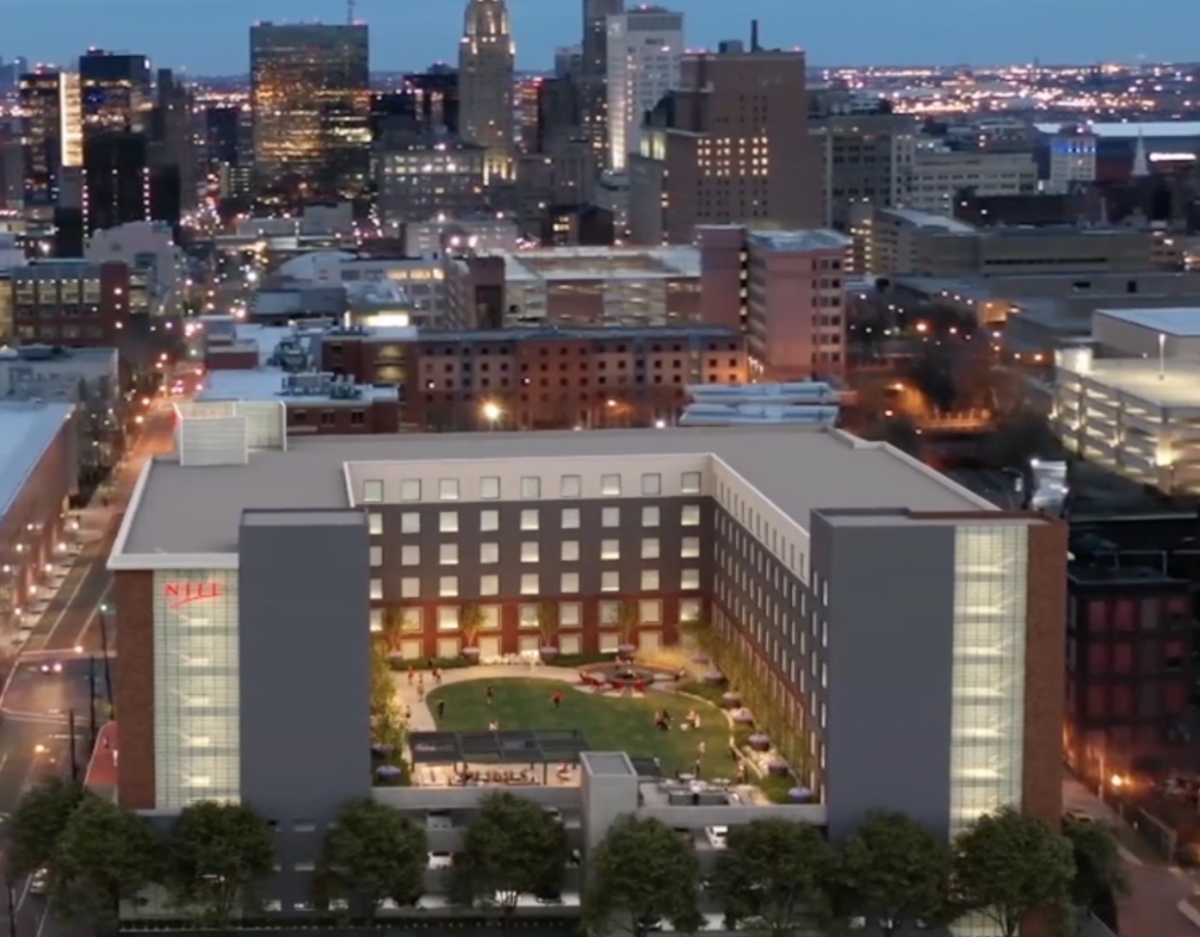Earlier this year, the University announced a plan for a new dormitory that would join NJIT’s little forest of undergraduate residence halls. The new hall will add an estimated 500 beds to NJIT’s undergraduate and graduate housing inventory.
The new hall, temporarily named Vue on Warren, is slated to be built on the Southwest corner of Wickliff and Warren Street. Building at this site will require the demolition of the Warren Street School, which closed in 2006. The former high school, which had a fire in May 2019, was purchased by NJIT from Claremont Properties Inc. in Dec. 2019.
Andrew Christ, NJIT’s Vice President of Real Estate Development and Capital Operations explained that the need for new dorms became clear because “NJIT has experienced significant growth in its student body. We have a demand for additional student housing beds, predominantly among undergraduates, but also potentially among graduate students that would like to live closer to campus.” Halls have been filled to capacity in recent years. “We want to try to eliminate the need for any tripling, because that’s not very comfortable for students. So when we purchased the Warren Street School last September, we decided it was the right time to go out with a request for a proposal for a public-private partnership for a new residence hall.”
Regarding funding, NJIT entered a public-private partnership with Niles Bolton Associates, also referred to as the RISE team, an architectural firm based out of Atlanta, Georgia. “In a public-private partnership, the project will finance itself. In other words, the rental revenue that will be collected by RISE and their team will pay for construction and debt service for the building. No money will come out of NJIT to subsidize the project. As a matter of fact, the project will pay NJIT back for the land acquisition costs for the Warren Street School Property and will also provide some revenue to the institution in future years for ground rent,” said Christ.
At the moment, NJIT has no obligation to fill all the rooms. “We want to maintain an arm’s length relationship, but at the same time we want it to feel and appear as if you’re just living in, say, Oak Hall. There should be no functional difference other than the fact that another entity operates and maintains that building.”

NJIT received nine proposals of designs from developers, ultimately deciding on RISE’s design. Branko Kolarevic, Dean of Hillier College of Architecture and Design and Darius Sollohub, associate professor, lead NJIT’s Steering Committee on the project. After RISE was selected, Kolarevic and Sollohub provided feedback for the design, particularly in identifying “potential design issues that we think should be addressed by the project’s architects,” said Kolarevic.
“The building is large, U shaped in plan, with six or seven residential floors,” including amenities and parking on ground floors, said Kolarevic. 85 parking spaces for residents will be available in the ground floors.
The most remarkable portion of the exterior of the build includes the lifted, outdoor terrace on the fourth floor that opens out onto Cornerstone Lane. The terrace will contain artificial grass and concrete pavement, an activity lawn, seating spaces, an arbor/media wall and an outdoor kitchen.
“The lower level has a pretty large lobby space: it’ll have a gaming room, study areas, collaboration spaces and a large package delivery area,” Christ detailed. “There’s also going to be a retail component on the Warren Street side of the building, which has not yet been filled.
Regarding the cultural significance of the building, which was built by architecture firm O’Rourke in 1892, Kolarevic said “the archway above the entryway into the [Warren Street School] will be reconstructed at the entrance into the lobby of the new building; everyone will enter through that arch. There should also be an exhibit about the history of the site and the high school that the new building will replace.”
The interior will contain a mix of residential units, from studios to four bedroom apartments, explained Kolarevic, with some rooms that are single occupancy, some double occupancy, to allow a large range of choices.
All units will contain a kitchen and the implementation of dishwashers is being discussed. Each unit will contain a common living space and operable windows and each floor will have its own common spaces.
With sustainability in mind, precast concrete will be implemented into the build. Additionally, “operable windows that will allow for a new HVAC system that will accommodate for the use of outside air for temperature control,” said Christ. High efficiency fixtures and LED lighting will be utilized as well.
“The price point will fit between those of the NJIT residence halls and the University Centre,” said Christ. “The beauty of having kitchen space is that juniors and seniors don’t necessarily have to have a meal plan, which will hopefully help drive down the cost of the living space… We wanted to keep multiple types of rooms to allow for all sorts of people because we do not want to create a circumstance where someone couldn’t afford to live in the building.”
The new hall is slated to be completed by the end of summer 2022 and opened to residents for the fall 2022 semester.


































